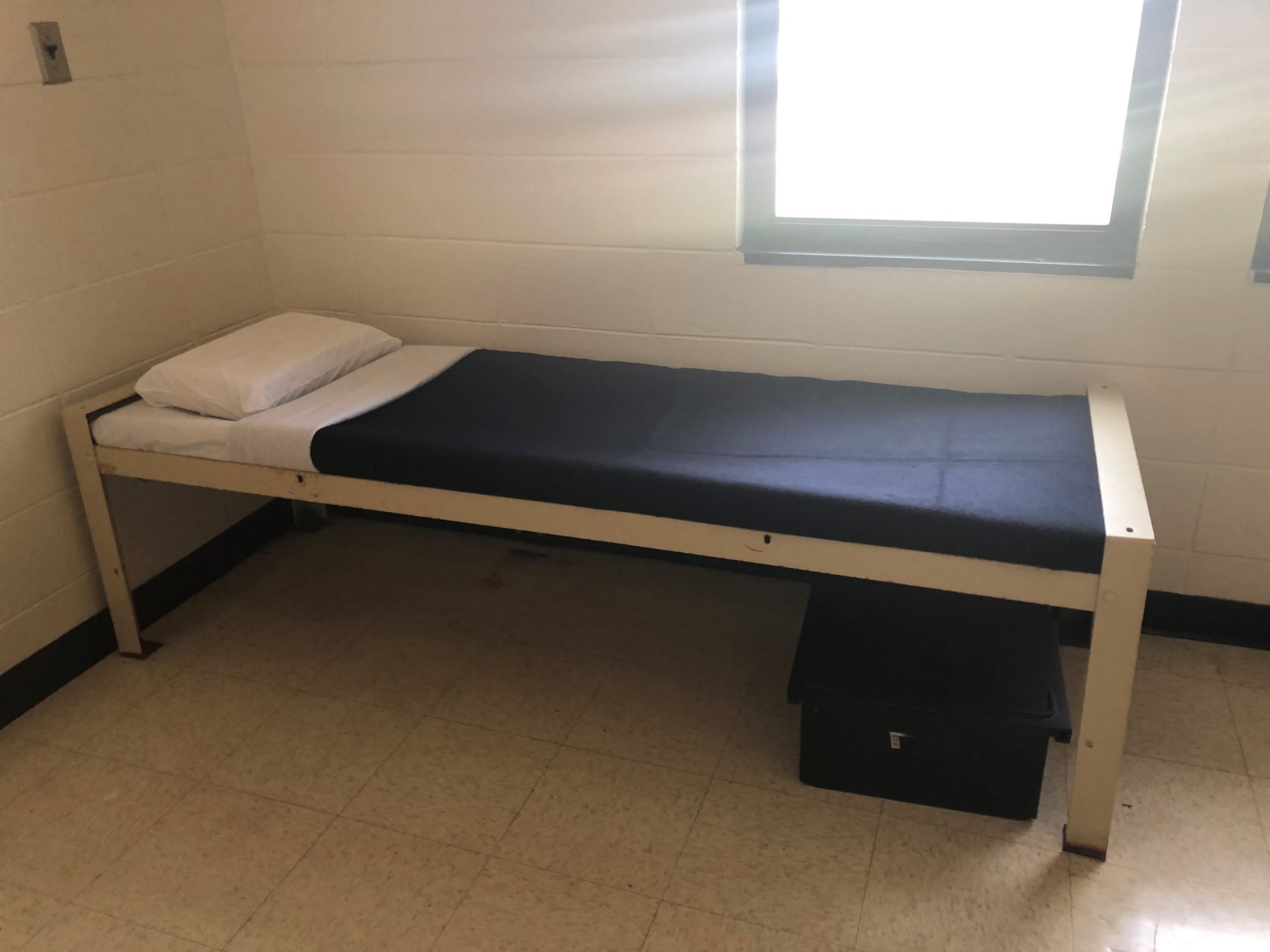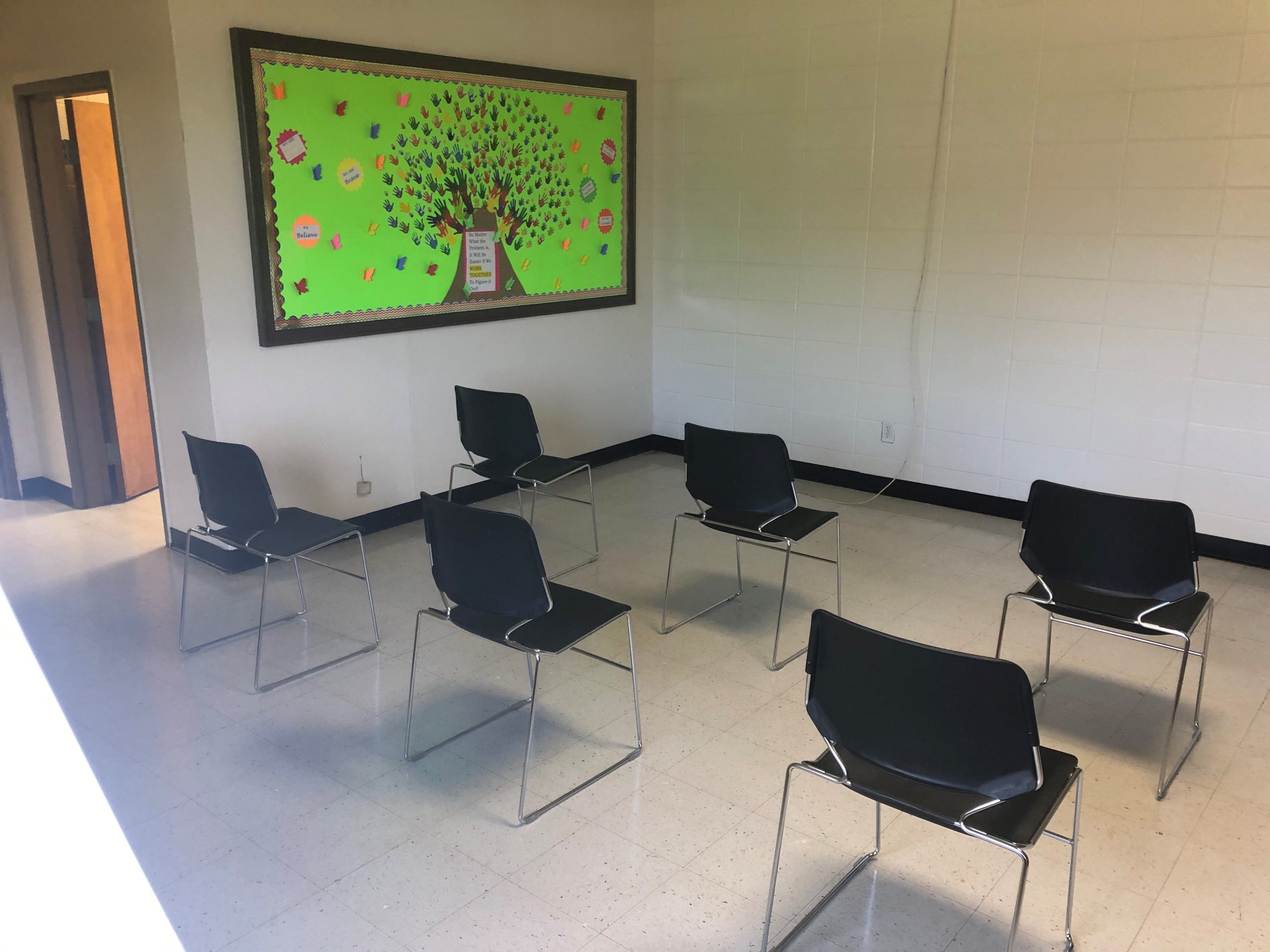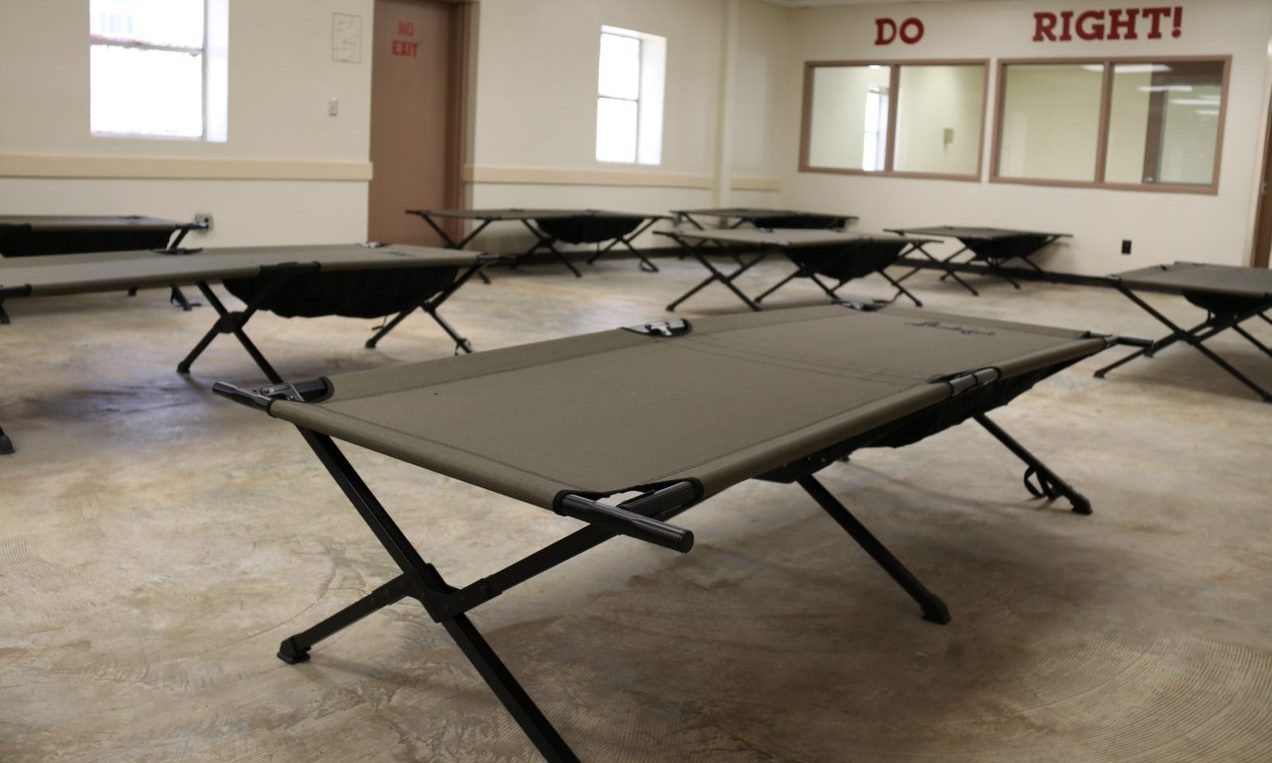The Alabama Department of Corrections on Thursday announced it would begin accepting inmates from county jails once the 30-day moratorium is over on the week of April 20, but will do so gradually, in limited numbers and won’t accept inmates who have COVID-19 symptoms.
“Additionally, the Department will not accept intakes from any jail facility that has had an inmate test positive for COVID-19 in the last 14 days prior to the planned transfer date, or any facility that currently is under quarantine due to a COVID-19 outbreak,” ADOC said in a statement Thursday.
Following Gov. Kay Ivey’s State of Emergency declaration, ADOC on March 20 placed a 30-day moratorium on receiving new inmates from county jails. No state inmate had tested positive for COVID-19 as of Thursday afternoon, but six prison workers from six separate facilities had tested positive.
“Throughout the 30-day moratorium, the ADOC has closely reviewed its intake procedures and engaged in efforts to amend its intake process, placing a profound emphasis on safety and health in light of COVID-19,” ADOC said in the statement.
Once intakes resume, ADOC said there is to be a “multi-stage intake pilot program” in which there will be “alternative intake sites, as well as the creation of spaces at those intake sites to screen, quarantine and isolate inmates, if necessary.”
During the first stage, ADOC’s plan calls for state prisons to accept approximately 100 male and 20 female inmates at most, over a two-day period. All of the new inmates will be quarantined for 14 days.
The men are to be quarantined in the recently-renovated vocational space, visitation building and portions of Draper Correctional facility’s main campus in Elmore. Women will be held for 14 days at the Julia Tutwiler Prison for Women’s sewing plant, according to the statement.
“The Department will collaborate with each county to identify these inmates and will focus on receiving inmates who have been held in jails for more than 30 days since receipt and acceptance by the Department of the inmate’s transcript, as well as from county facilities with significant capacity limitations,” Thursday’s statement reads.

An ADOC-provided photo of a male intake waiting area. (via Alabama Department of Corrections)

An ADOC-provided photo of a women’s intake dorm area. (via Alabama Department of Corrections)

An ADOC-provided photo of a women’s intake waiting area. (via Alabama Department of Corrections)
See full ADOC statement below:
The Alabama Department of Corrections (ADOC) continues its system-wide efforts to mitigate the spread of COVID-19 across its facilities, working in partnership with Governor Ivey’s Coronavirus (COVID-19) Task Force, the Alabama Department of Public Health (ADPH), and various infectious disease control experts. As the COVID-19 situation evolves, we will consider all new recommended guidelines from the U.S. Centers for Disease Control and Prevention (CDC) and other state and federal agencies to best protect all those who live and work in our facilities.
Six (6) ADOC staff members have self-reported positive tests for COVID-19. To date, zero (0) inmates have tested positive for COVID-19. Any inmates who exhibit signs or symptoms of the disease are evaluated by a physician, who will order a test for COVID-19 if appropriate CDC testing criteria are met. For the latest testing information, please click here: http://www.doc.alabama.gov/COVID19Testing. This information is updated every Tuesday and Friday.
On March 19, the ADOC temporarily suspended the following for a 30-day period:
- All visitation, inmate passes, tours, and volunteer entry into our facilities
- All non-emergent inmate community-physician appointments and procedures
- All Work Release and Work Center Programs
- General legal visits conducted in-person by attorneys with inmates
These programs and activities will remain suspended for an additional 30 days, or until such time as the Department deems it safe to resume.
Effective March 20, 2020, the Department placed a 30-day moratorium on new intakes from county jails, based on Governor Ivey’s declared State of Emergency related to COVID-19. This restriction includes, but is not limited to, new commitments, court returns, and parolees and probationers who are revoked or sanctioned to a dunk. During this time, the Department has continued to receive inmates with severe medical or mental health conditions, subject to the usual review process by the Department’s Office of Health Services. Additional health screenings have been implemented at the facility level to ensure these inmates are not symptomatic prior to entry.
(ADOC in the above paragraph uses the term “dunk,” which are parole violations that require a 45-day incarceration in a state prison.)
The moratorium, which was implemented based upon recommendations from the CDC and aligned with numerous correctional systems across the country, is expected to end the week of April 20, 2020. Throughout the 30-day moratorium, the ADOC has closely reviewed its intake procedures and engaged in efforts to amend its intake process, placing a profound emphasis on safety and health in light of COVID-19.
As the ADOC cannot yet safely resume normal, system-wide intake processes, the Department intends to initiate a multi-stage intake pilot program to test and, however appropriate, modify this amended process over time. This pilot program is expected to begin next week, assuming no drastic changes in circumstances occur prior to its initiation. A multi-stage intake pilot program of this nature affords the Department an opportunity to evaluate the efficacy and safety of its amended intake process while still tracking and responding to the rapidly changing circumstances surrounding COVID-19.
This amended process includes changes to the ADOC’s standard intake procedures and the identification of alternative intake sites, as well as the creation of spaces at those intake sites to screen, quarantine, and isolate inmates, if necessary. Because mitigating the spread of COVID-19 in our facilities is paramount, this process also heavily relies on the expectation that county jails adequately follow, to the best of their ability, best practices and procedures as recommended by the CDC. These best practices include screening, testing, quarantining, and treating any inmates who test positive for COVID-19 or who directly are exposed to an individual who tests positive.
During stage one, this intake pilot program will allow the ADOC to accept an approximate maximum of 100 male and 20 female inmate cohorts over a two-day period, all of whom will be quarantined for a mandatory 14-day period. The Department will collaborate with each county to identify these inmates and will focus on receiving inmates who have been held in jails for more than 30 days since receipt and acceptance by the Department of the inmate’s transcript, as well as from county facilities with significant capacity limitations. The Department will not accept new intakes who are symptomatic of COVID-19. Additionally, the Department will not accept intakes from any jail facility that has had an inmate test positive for COVID-19 in the last 14 days prior to the planned transfer date, or any facility that currently is under quarantine due to a COVID-19 outbreak.
The Department will work with each county to develop an inmate transfer process that is mindful of best practices and allows for social distancing whenever possible. At the end of the 14-day quarantine period, the Department will reassess its intake procedures and consider any changes that will positively impact the process moving forward. Upon completion of this process evaluation, the Department will communicate with all counties regarding additional or modified procedures to the pilot program for the second round of new intakes.
New male intakes will be quarantined in the recently renovated vocational space, in the visitation building, and in a renovated portion of the main facility on the Draper Correctional Facility (Draper) campus. Appropriate health and security modifications have been made within the previously decommissioned area of Draper to safely house quarantined intakes. New female intakes will be quarantined in a facility on state property next to Julia Tutwiler Prison for Women where the Tutwiler sewing plant is located. Upon arrival at their respective intake quarantine facility, inmates will be provided with face masks before entering an intake holding area – one-by-one – to undergo medical screenings.
Maintaining the safety, security, and well-being of our overall system remains the ADOC’s highest priority. The Department appreciates the cooperation of the sheriffs and county commissions across Alabama, and is grateful for these partnerships during this unforeseen and challenging time.























































